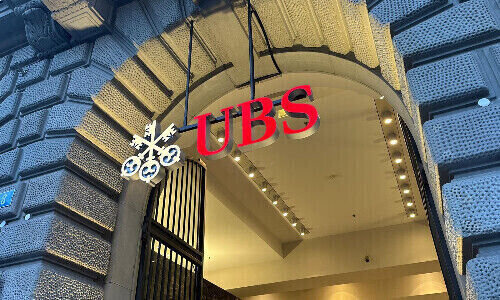UBS Settles French Tax Case: Pragmatism or Capitulation?
UBS is closing its long-running French tax dispute with a payment of 835 million euros — far less than once demanded, yet far more than the latest court rulings seemed to require. For shareholders, the aftertaste is bitter: Did the bank surrender strong legal cards in favor of a politically driven settlement at a steep price?
One thing UBS cannot be accused of in this saga is poor expectations management. By raising its litigation provision in 2023 to 1.1 billion euros – up from 450 million in 2019 – the bank had already signaled the likely scale of a resolution.
Accordingly, Tuesday’s announcement of an 835 million euro deal was met with relief. «Success for Ermotti — UBS pays less than feared,» exclaimed Swiss tabloid «Blick». The «Financial Times» also approved: «UBS whittles 4.5 billion euros French tax evasion penalty down to 835 million.»
Relative to the original first-instance judgment of 4.5 billion euros – 3.7 billion in fines plus 800 million in civil damages – the outcome looks positive. Compared with other cases, however, the picture is less flattering.
Even the US Was Cheaper
In February 2009, UBS paid $780 million to the US Department of Justice (DOJ) and the SEC over tax-evasion support for American clients. The US market was many times more vital to UBS than France.
In July 2014, the bank paid just 300 million euros in Germany to settle similar charges.
Premature Settlement?
All three matters stem from the banking-secrecy era, predating withholding arrangements and the Automatic Exchange of Information. In France, prosecutors launched their probe in 2014 over conduct between 2004 and 2012.
The question arises whether UBS settled prematurely, to shareholders’ detriment. Back in June 2017, it rejected a settlement – the convention judiciaire d’intérêt public (CJIP) — at 1.1 billion euros. That is essentially the type of agreement it has now accepted, albeit at a slightly lower figure.
Fine Slashed
At first, litigation looked ruinous: in February 2019, the Paris Court of First Instance imposed 3.7 billion euros in fines and 800 million in civil damages.
But in December 2021, the Court of Appeal slashed the criminal fine to 3.75 million euros – a thousand-fold reduction – though it maintained a 1 billion euro confiscation and the 800 million euros in civil damages. Hence the oft-quoted «1.8 billion» figure, legally not a fine but confiscation plus civil claims.
A Blow to Prosecutors
In November 2023, the French Court of Cassation upheld convictions for unlawful solicitation and aggravated money laundering but annulled the 1 billion euros confiscation. It remanded the matter to the Court of Appeal under conditions so restrictive that a revival was virtually impossible.
In effect, only civil damages remained in play – and prosecutors were on the defensive.
Civil Damages as the Pivot
Those damages, set at 800 million euros, were questionable from the start. UBS pointed out in 2019 that the Cour des comptes had estimated France’s administrative costs for all bank-related tax regularizations at just 40 million euros – a fraction of the amount awarded.
Against this backdrop, UBS’s decision in September 2025 to settle for 835 million euros – comprising a 730 million euro fine and 105 million euros in civil damages – is difficult to reconcile with the legal trajectory. The number reflects the dynamics of negotiation more than the outcome of litigation.
A Risky Precedent
UBS justified its move as being in the «best interests of all stakeholders». In practice, that means a little for shareholders, a little for the French state, some for public perception – and perhaps a measure of prosecutorial pride.
The impression lingers that a few hundred million euros were treated as a rounding error to clear the books once and for all.
Shareholders can only hope that France’s example will not be replicated elsewhere. Even the most disciplined expectations management comes with a price tag.




























